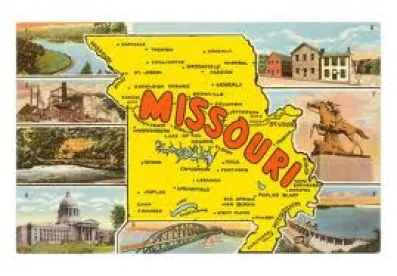On May 17, 2018, the Missouri General Assembly adopted a comprehensive rewrite of Missouri public sector labor law in House Bill 1413 (HB 1413), which primarily concentrates on the public sector labor law provisions of Chapter 105 of the Missouri Code. HB 1413 is effective August 28, 2018, unless vetoed by the governor.
In this three-part series devoted to a close examination of the legislation that will dramatically change public sector labor law in Missouri, we focus on the significant features of HB 1413. Part one addressed the bill’s carve-outs and provisions affecting the representation process. These carve-outs are critical to an understanding of collective bargaining, since certain categories of public employees as well as public safety labor organizations and their members are exempt from Chapter 105’s public sector labor laws.
In this article, we examine the rules pertaining to public sector collective bargaining.
Collective Bargaining
First Contracts
Bargaining for a first contract, following initial certification, must begin within eight weeks after certification (Sec. 105.580.1).
Successor Contracts
Following the first contract, negotiations for successor contracts must be completed within 30 days of the end of the public body’s fiscal year (Sec. 105.580.7).
Sunshine Law
Meetings between a public body and a labor organization regarding a labor agreement are public/open meetings under the Sunshine Law and cannot be closed (Sec. 105.583.1). Bargaining proposals exchanged between the public employer and the labor organization are public/open records under the Sunshine Law and cannot be closed (Sec. 105.583.2). Under the Sunshine Law, the public employer may still close meetings and records that are conducted or generated as part of its internal planning and strategy process (Sec. 105.583.3).
The Bargaining Process
The labor organization may not refuse to meet with the public employer’s designated bargaining representatives, nor may it attempt to cause the public employer to remove or replace its designated representative (Sec. 105.580.2). Neither party is required to offer any particular concessions or withdraw any particular proposal (Sec. 105.580.3). The public employer may not pay any labor organization or any employee of the public body for time spent in the bargaining process (including preparation) on behalf of the labor organization, except to the extent that the employee has personally accrued paid time off which may be cashed out (Sec. 105.580.4).
Required and Prohibited Terms
Certain terms are required by statute to be contained within the collective bargaining agreement, and others are prohibited:
- Right to Work. Right to work in the public sector is implemented, inasmuch as no employee can be required to sign an authorization to withhold union dues, agency shop fees, or other labor organization fees from paychecks as a condition of employment (Sec. 105.505.5).
- Annual Checkoff Authorization. Checkoff of union dues, agency shop fees, or other labor organization fees must be authorized annually, either in writing or electronically (Sec. 105.505.1).
- Wages and Benefits. Wages, benefits, and other terms and conditions of employment that have been agreed upon may be included in the agreement (Sec. 105.585).
- Term. There is a three-year limit on the duration of the agreement, although the parties may agree to extend noneconomic provisions beyond three years (Sec. 105.580.7-8).
- Management’s Rights. The agreement must spell out certain specific management rights (Sec. 105.585(1)).
- No Striking/Picketing. The agreement must spell out certain prohibited labor organization conduct and specify that immediate termination is the penalty for an employee who violates the provision (Sec. 105.585(2)).
- Duty of Fair Representation. The labor organization must recognize its duty of fair representation of all bargaining unit employees (Sec. 105.585(3)).
- Labor Organization Business. The agreement must prohibit payment to labor organization representatives and public employees for time spent on union business, with two exceptions: employees may use accrued, unused paid time off for these purposes and employees may be paid by their public employer for time spent in grievance handling (Sec. 105.585(4)).
- Free Association. The agreement must state that employees have the right to refrain from and, in fact, to oppose labor organization activity.
- Budget Shortfalls. The agreement must give the public employer the right to require modification of the economic terms of the agreement in case of budget shortfall. The agreement must state that, for good cause, the public employer can give the labor organization 30 days to bargain over necessary economic adjustments—and, agreement failing, the public employer can make the necessary adjustments on its own.
Unsuccessful Negotiations
If bargaining is unsuccessful, interest arbitration, binding interest arbitration, and binding mediation are not available to resolve the dispute (Sec. 105.580.6). Nothing in the legislation can be construed so as to grant public employees the right to strike as a means of resolving negotiations (Sec. 105.530).
Ratification
Tentative agreements reached during bargaining are not binding upon either party (Sec. 105.580.5). Before the proposed bargaining agreement is presented to the public employer for adoption, the labor organization must demonstrate that the agreement has been ratified by a majority of its members (Sec. 105.580.5). Upon presentation to the public employer, the public employer has two choices: adopt the agreement as presented or adopt the agreement as presented in part and reject it in part (Sec. 105.580.5). If the public employer rejects the agreement in part, it then has three choices: return the rejected clause(s) to the labor organization for further bargaining; adopt replacement clauses of its own design; or advise the labor organization that no substitute for the rejected clause(s) will be adopted (Sec. 105.580.5).
Remedies
Most of the violations of the collective bargaining provisions are subject to suit by any citizen of the state who may seek injunctive relief, together with damages and attorney’s fees (Sec. 105.595).
Key Takeaways
With collective bargaining sessions now open to the public, transparency to the taxpayers should mean more bargaining table civility, more reasonable contract proposals by both sides, and quicker resolution of bargaining table issues. With some contract clauses required and others prohibited, these potential areas of dispute are removed, once again promoting more expeditious resolution of contract negotiations. Given the budget shortfall provisions, employers will be more willing to grant favorable economic terms with the knowledge that these favorable economic terms are not locked in forever, but rather, can be modified for good cause.
The final installment of this series will examine HB 1413’s union reporting rules and other obligations





 />i
/>i

